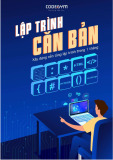
TNU Journal of Science and Technology 230(07): 160 - 167
http://jst.tnu.edu.vn 160 Email: jst@tnu.edu.vn
OVERVIEW OF APPLICATION OF GENERATIVE ARTIFICIAL
INTELLIGENCE IN SOFTWARE SOURCE CODE GENERATION
Nguyen Van Viet
1
*
, Nguyen Huu Khanh
2
, Nguyen The Vinh
1
,
Vu Van Dien1, Nguyen Kim Son1, Luong Thi Minh Hue1
1
TNU of Information and Communication Technology,
2
Thai Nguyen University
ARTICLE INFO ABSTRACT
Received:
13/3/2025
This paper provides an overview of the application of generative artificial
intelligence in the process of software source code generation. Large
language models such as GPT-
4, CodeBERT, Codex, and AlphaCode are
helping programmers automate many tasks, in
cluding generating code
from natural language descriptions, detecting programming errors,
optimizing code, and improving software maintainability. The study uses
the PRISMA method to analyze scientific literature from Web of Science
during 2021-2025, focus
ing on important topics and research trends of
Large language models
in software engineering. The results show that the
number of articles on this topic increased
sharply in 2024, reflecting the
growing interest in artificial intelligence
in software development. The
studies also show that Elsevier and IEEE are the two sources of documents
with the largest number of publications in this field. Although
generative
artificial intelligence
offers many benefits, the study also addresses
import
ant challenges such as code accuracy, error detection, security and
privacy issues. Integrating generative artificial intelligence
into the
software development process requires appropriate approaches to exploit
the full potential of this technology. The p
aper concludes that research on
Large language models
in software engineering still has many gaps,
opening up opportunities for new directions of development in the future.
Revised:
26/6/2025
Published:
28/6/2025
KEYWORDS
Generative
artificial intelligence
Software engineering
Transformer
Artificial intelligence
PRISMA
TỔNG QUAN VỀ ỨNG DỤNG TRÍ TUỆ NHÂN TẠO TẠO SINH
TRONG QUÁ TRÌNH PHÁT SINH MÃ NGUỒN PHẦN MỀM
Nguyễn Văn Việt
1
*
, Nguyễn Hữu Khánh
2
, Nguyễn Thế Vịnh
1
,
Vũ Văn Diện1, Nguyễn Kim Sơn1, Lương Thị Minh Huế1
1
Trường Đại học Công nghệ thông tin và Truyền thông – ĐH Thái Nguyên,
2
Đại học Thái Nguyên
THÔNG TIN BÀI BÁO TÓM TẮT
Ngày nhậ
n bài:
13/3/2025
Bài báo tổng quan về ứng dụng trí tuệ nhân tạo tạo sinh trong phát
sinh mã
nguồn phần mềm, với trọng tâm là các mô hình ngôn ngữ lớn như GPT-
4,
CodeBERT, Codex và AlphaCode. Các mô hình này hỗ trợ lậ
p trình viên
tự động hóa nhiều tác vụ như sinh mã từ mô tả ngôn ngữ tự
nhiên, phát
hiện lỗi, tối ưu mã và cải thiện bảo trì phần mềm. Nghiên cứu áp dụ
ng
phương pháp PRISMA để phân tích tài liệu từ Web of Science giai đoạ
n
2021-2025, tập trung vào xu hướng và chủ đề quan trọng trong kỹ thuậ
t
phần mềm. Kết quả cho thấy sự gia tăng mạnh mẽ số lượng nghiên cứ
u vào
năm 2024, đặc biệt từ các nguồn Elsevier và IEEE. Dù trí tuệ nhân tạo tạ
o
sinh mang lại nhiều lợi ích, bài báo cũng đề cập đến các thách thức như độ
chính xác của mã sinh, lỗi ảo giác, vấn đề bảo mật và quyền riêng tư. Việ
c
tích hợp trí tuệ nhân tạo tạo sinh vào phát triển phần mềm đòi hỏ
i phương
pháp tiếp cận phù hợp để khai thác tối đa tiềm năng công nghệ. Bài báo kế
t
luận rằng nghiên cứu về trí tuệ nhân tạo tạo sinh trong kỹ thuật phần mề
m
vẫn còn nhiều khoảng trống, mở ra cơ hội phát triển trong tương lai.
Ngày hoàn thiệ
n:
26/6/2025
Ngày đăng:
28/6/2025
TỪ KHÓA
Trí tuệ nhân tạo tạo sinh
Kỹ thuật phần mềm
Transformer
Trí tuệ nhân tạo
PRISMA
DOI: https://doi.org/10.34238/tnu-jst.12305
* Corresponding author. Email: nvviet@ictu.edu.vn

TNU Journal of Science and Technology 230(07): 160 - 167
http://jst.tnu.edu.vn 161 Email: jst@tnu.edu.vn
1. Giới thiệu
Trí tuệ nhân tạo tạo sinh (Generative artificial intelligence - GenAI) là một nhánh của trí tuệ
nhân tạo, nó tập trung vào việc tạo ra các dữ liệu mới như văn bản, hình ảnh, âm thanh, mã
nguồn… thay vì phân tích dữ liệu, thì nó sẽ học cách tạo ra các dữ liêu mới dựa vào các dữ liệu đã
được đào tạo trước đó. Trí tuệ nhân tạo tạo sinh sử dụng các thuật toán của học máy để phân tích
lượng dữ liệu lớn đã được đào tạo trước đó, hiểu các mẫu và tương quan trong dữ liệu đã được đào
tạo, qua đó nó có thể tạo ra các dữ liệu tương tự trước đó mà không hoàn toàn giống nhau.
Trí tuệ nhân tạo tạo sinh mang lại nhiều lợi ích quan trọng, bao gồm khả năng tạo ra dữ liệu
mới, tự động hóa các tác vụ lặp đi lặp lại, tiết kiệm thời gian, hỗ trợ ra quyết định, giải quyết các
vấn đề phức tạp, cũng như thúc đẩy đổi mới sáng tạo trong nhiều lĩnh vực khác nhau. Tuy nhiên,
trong bối cảnh hiện nay, việc phát triển và triển khai các mô hình trí tuệ nhân tạo, đặc biệt là các
mô hình ngôn ngữ lớn (Large Language Models - LLMs) đang đặt ra những thách thức đáng kể.
Cụ thể, chi phí đào tạo các mô hình này rất cao, đồng thời tiềm ẩn các rủi ro liên quan đến việc
xử lý thông tin nhạy cảm trong các lĩnh vực như y tế, tài chính và thương mại điện tử.
Bài báo này nhằm mục đích nghiên cứu tổng quan về việc sử dụng GenAI trong lĩnh vực kỹ
thuật phần mềm. Các nhà phát triển phần mềm, kiểm thử phần mềm có thể sử dụng mô hình ngôn
ngữ lớn trong các pha phát triển, xây dựng. Sử dụng LLMs trong lĩnh vực kỹ thuật phần mềm là
cơ hội để giúp cho các công ty phát triển phần mềm, các nhóm nghiên cứu triển khai được nhanh
chóng, giảm thiểu nguồn nhân lực, tài chính.
Các mô hình ngôn ngữ lớn đang tạo ra bước tiến đột phá trong kỹ thuật phần mềm, đặc biệt
trong các tác vụ liên quan đến mã nguồn như sinh mã, sửa lỗi, kiểm thử, đánh giá mã [1] – [3]
và đánh giá tổng quan LLMs trong lĩnh vực giáo dục, pháp lý [4], [5]. Nhiều nghiên cứu gần đây
đã khảo sát toàn diện khả năng của LLMs trong các bối cảnh này, từ các khung phân tích mô hình
[6] đến phân loại thách thức và định hướng tương lai [3]. Các mô hình như ChatGPT và Copilot
đã được ứng dụng rộng rãi nhờ khả năng hỗ trợ lập trình theo thời gian thực [7], [8].Tuy nhiên,
bên cạnh tiềm năng lớn, các vấn đề như độ chính xác, tính minh bạch và độ tin cậy vẫn là những
thách thức cần giải quyết [6], [9], [10]. Các nghiên cứu đã chỉ ra rằng việc áp dụng LLMs trong
các tác vụ quan trọng như sửa lỗi hay đánh giá mã đòi hỏi phải có các tiêu chuẩn đánh giá và xác
thực rõ ràng [7]. Dù vậy, các kết quả thực nghiệm và đánh giá gần đây cho thấy LLMs vẫn là
hướng đi đầy hứa hẹn trong phát triển phần mềm dựa trên trí tuệ nhân tạo (Artificial intelligence
– AI) [1], [3]. Bài báo này nhằm tổng hợp và phân tích các xu hướng nghiên cứu tiêu biểu liên
quan đến ứng dụng LLMs trong kỹ thuật phần mềm hiện nay.
Để giải quyết các vấn đề nêu trên, các nhóm nghiên cứu, nhà khoa học đã nêu, trình bày tiềm
năng, cơ hội, khó khăn, thách thức đối với việc sử dụng phân tích tổng quan về trí tuệ nhân tạo
tạo sinh trong lĩnh vực kỹ thuật phần mềm qua các câu hỏi:
Câu hỏi 1: Số lượng bài báo nghiên cứu trong cơ sở dữ liệu tạp chí, hội thảo đối với việc sử
dụng trí tuệ nhân tạo tạo sinh trong lĩnh vực kỹ thuật phần mềm thay đổi như thế nào?
Câu hỏi 2: Những từ khóa nào xuất hiện thường xuyên nhất về sử dụng trí tuệ nhân tạo tạo
sinh trong lĩnh vực kỹ thuật phần mềm của kho dữ liệu tạp chí, hội thảo?
Câu hỏi 3: Những chủ đề nghiên cứu quan trọng nhất trong việc sử dụng trí tuệ nhân tạo tạo
sinh trong lĩnh vực kỹ thuật phần mềm là gì?
Câu hỏi 4: Những khoảng trống và lĩnh vực cho nghiên cứu trong tương lai là gì?
Việc trả lời các câu hỏi nghiên cứu ở phía trên sẽ giúp cho các nhà phát triển phần mềm có
được những góc nhìn cơ bản để tiếp cận theo trí tuệ nhân tạo tạo sinh trong lĩnh vực kỹ thuật
phần mềm. Các khoảng trống trong nghiên cứu hiện tại có thể mở ra những hướng đi mới cho các
nhà nghiên cứu trong tương lai.
2. Phương pháp nghiên cứu
Bài viết sử dụng phương pháp nghiên cứu tổng quan PRISMA (Preferred Reporting Items for

TNU Journal of Science and Technology 230(07): 160 - 167
http://jst.tnu.edu.vn 162 Email: jst@tnu.edu.vn
Systematic Reviews and Meta-Analyses). Nhóm nghiên cứu sẽ áp dụng phương pháp tổng quan
hệ thống PRISMA để thực hiện việc tìm kiếm và thống kê các bài báo khoa học từ các cơ sở dữ
liệu như Scopus, Google Scholar, IEEE Xplore... bằng cách sử dụng các từ khóa cụ thể. Sau đó,
các bài báo không đáp ứng tiêu chí lựa chọn sẽ được loại trừ khỏi danh sách nghiên cứu. Phương
pháp PRISMA có các các tiêu chí đánh giá chất lượng trong nghiên cứu, minh họa số lượng các
bài báo ở từng giai đoạn (tìm kiếm, sàng lọc, đủ điều kiện và lựa chọn phân tích), trích xuất các
từ khóa, quốc gia để đưa ra được phân tích tổng quan chi tiết giúp nghiên cứu viên có thể đánh
giá độ tin cậy của các nghiên cứu trước khi sử dụng chúng trong nghiên cứu của mình.
2.1. Nguồn tìm kiếm
Nghiên cứu này hoàn toàn dựa trên Web of Science (WoS) như một nguồn tìm kiếm chính để
thu thập dữ liệu. WoS là một nền tảng cung cấp cơ sở dữ liệu học thuật mạnh mẽ, hỗ trợ tìm kiếm
và truy xuất các tài liệu nghiên cứu khoa học có giá trị. Hệ thống này giúp các nhà nghiên cứu
tiếp cận nhanh chóng với những công trình quan trọng, theo dõi xu hướng nghiên cứu hiện tại,
đánh giá mức độ ảnh hưởng của bài báo dựa trên số lần trích dẫn, đồng thời mở rộng cơ hội hợp
tác khoa học. Nhờ các công cụ phân tích hiện đại, WoS không chỉ hỗ trợ việc tìm kiếm mà còn
giúp định hướng nghiên cứu một cách chính xác và kịp thời. Điều này đảm bảo rằng nghiên cứu
có thể tổng hợp và đánh giá thông tin một cách toàn diện từ các nguồn dữ liệu chất lượng cao,
phù hợp với việc phân tích thư mục và tổng quan tài liệu có hệ thống. Hạn chế của WoS là không
bao gồm nguồn dữ liệu mở như Google Scholar hay các bài báo chưa được xuất bản chính thức.
2.2. Tiêu chí tìm kiếm và điều kiện
Tác giả lựa chọn các bài báo để phân tích tổng quan từ cơ sở dữ liệu tạp chí, hội thảo trong
lĩnh vực kỹ thuật phần mềm ứng dụng Generative AI. Tiêu chí lựa chọn bài báo gồm:
i) Thuật ngữ tìm kiếm: ít nhất một thuật ngữ liên quan đến Generative AI (GenAI), Large
language Models, Code, Software Engineering (SE) phải xuất hiện trong tiêu đề bài viết;
ii) Thuật ngữ “Generative AI”, Software Engineering (SE), Large language model;
iii) Loại trừ những bài báo được xuất bản từ 2020 trở về trước;
iv) Thực hiện loại trừ những bài báo không liên quan giữa GenAI và Kỹ thuật phần mềm.
Qua quá trình tìm kiếm và sàng lọc dữ liệu với tổng số 503 bài báo, thực hiện tổng hợp các bài
báo liên quan đến tiêu chí trên còn lại 225 bài đưa vào phân tích với thời gian xuất bản các bài
báo, nghiên cứu từ năm 2021 đến 2025.
Hình 1 mô tả luồng thông tin qua các giai đoạn khác nhau để đánh giá hệ thống và sử dụng
phương pháp PRISMA. Trong đó Identification là số lượng bài báo được tìm kiếm, Screening
thực hiện sàng lọc theo các tiêu chí của tác giả, Eligibility – lựa chọn các bài báo đủ điều kiện
truy cập, Included – giai đoạn lựa chọn số liệu bài toán nghiên cứu.
Hình 1. Biểu đồ thể hiện sự di chuyển của thông tin qua các giai đoạn khác nhau của một đánh giá hệ thống

TNU Journal of Science and Technology 230(07): 160 - 167
http://jst.tnu.edu.vn 163 Email: jst@tnu.edu.vn
3. Kết quả và bàn luận
3.1. Số lượng bài báo nghiên cứu trong cơ sở dữ liệu tạp chí, hội thảo đối với việc sử dụng
LLMs trong lĩnh vực kỹ thuật phần mềm thay đổi như thế nào?
Biểu đồ Hình 2 cho thấy tổng quan phân phối số lượng các tài liệu sử dụng về mô hình ngôn
ngữ lớn trong lĩnh vực kỹ thuật phần mềm từ năm 2021 đến 2025. Với tổng số bài được phân tích
là 225, số lượng các bài báo được phân bố không đồng đều, các lĩnh vực này phát triển chậm
trong giai đoạn từ 2021 đến 2023 với số lượng liên quan trong cơ sở dữ liệu tìm kiếm từ 32 đến
37 bài, đến năm 2024 các dữ liệu xuất bản liên quan đến từ khóa tăng đột biến lên đến 114 bài.
Đầu năm 2025 có 5 bài về lĩnh vực được công bố.
Hình 2. Số lượng bài báo, ấn phẩm được xuất bản theo năm từ 2021 đến 2025
Bảng 1. Các bài báo về sử dụng trí tuệ nhân tạo tạo sinh về lĩnh vực phần mềm, mã nguồn
được xuất bản trên các tạp chí
Nguồn tạp chí Số lượng bài báo
Elsevier
50
I
EEE
47
Springer 36
Assoc Computing Machinery 17
Các tạp chí khác 75
Từ Bảng 1, ta thấy rằng Elsevier đóng góp nhiều bài viết nhất có liên quan đến mô hình ngôn
ngữ lớn, kỹ thuật phần mềm, trí tuệ nhân tạo với 50 bài, chiếm tỷ lệ 22% bài được phân tích.
Đứng thứ 2 là IEEE với 47 bài, chiếm 21%. Đứng thứ 3 là Springer với 36 bài, chiếm 16%. Các
tạp chí, hội thảo còn lại gần tương đương nhau. Kết quả này cung cấp thông tin hữu ích cho các
nhà nghiên cứu về LLMs trong các lĩnh vực về kỹ thuật phần mềm, AI, ChatGPT… Tỷ lệ 22%
các công bố xuất hiện trên các tạp chí uy tín có thể được lý giải bởi ba nguyên nhân chính. Thứ
nhất, các nghiên cứu trong lĩnh vực này có tính mới cao và chứa hàm lượng học thuật đáng kể.
Thứ hai, phần lớn các nghiên cứu đang đóng vai trò quan trọng trong việc thúc đẩy các hướng
phát triển của các nhóm nghiên cứu quy mô nhỏ. Cuối cùng, chất lượng học thuật cao của các
nghiên cứu đã được các tạp chí khoa học ghi nhận thông qua việc công nhận những đóng góp
thiết thực cho cộng đồng nghiên cứu.
Từ Bảng 2, ta có thể thấy rằng bài báo nghiên cứu “Deep Learning for Code Intelligence:
Survey, Benchmark and Toolkit” đăng trên Assoc Computing Machinery của nhóm tác giả Wan
và cộng sự [1] được các nhà khoa học quan tâm và trích dẫn nhiều nhất với số lượt trích dẫn là
309 trong cơ sở dữ liệu của WoS. Điều này cho thấy vị trí và tầm quan trọng của công trình của
họ trong lĩnh vực này. Các bài viết khác nghiên cứu về LLMs trong lĩnh vực kỹ thuật phần mềm
32 33 37
114
5
0
20
40
60
80
100
120
năm 2021 năm 2022 năm 2023 năm 2024 năm 2025
Số lượng bài từ năm 2021 đến 2025

TNU Journal of Science and Technology 230(07): 160 - 167
http://jst.tnu.edu.vn 164 Email: jst@tnu.edu.vn
cũng được lượng trích dẫn lớn như “: A Model-Based Universal Analysis Framework for Large
Language Models” [6]; “Decoding ChatGPT: A taxonomy of existing research, current
challenges, and possible future directions” [7]. Bài viết của các tác giả còn lại có số lượng trích
dẫn cao cho thấy sự quan tâm và tính mới của vấn đề này.
Bảng 2. Top 05 bài báo có số lượt được trích dẫn nhiều nhất trong cơ sở dữ liệu có liên quan đến lĩnh vực
kỹ thuật phần mềm, trí tuệ nhân tạo tạo sinh
Tên bài báo Lượt được
trích dẫn
Deep Learning for Code Intelligence: Survey, Benchmark and Toolkit
[1]
309
LUNA: A Model-Based Universal Analysis Framework for Large Language Models [6] 253
Decoding ChatGPT: A taxonomy of existing research, current challenges, and possible
future directions [7]
227
A Systematic Review of AI
-
Enabled Frameworks in Requirements Elicitation
[11]
184
Software Testing with Large Language Models: Survey, Landscape, and Vision [2] 164
3.2. Những từ khoá nào xuất hiện thường xuyên nhất về sử dụng trí tuệ nhân tạo tạo sinh
trong lĩnh vực kỹ thuật phần mềm của kho dữ liệu tạp chí, hội thảo?
Hình 3 trình bày bản đồ trực quan về các xu hướng nghiên cứu, được tạo bằng phần mềm
VOSviewer, nhằm phân tích mối quan hệ giữa lĩnh vực kỹ thuật phần mềm, mô hình ngôn ngữ
lớn và trí tuệ nhân tạo trong giai đoạn từ năm 2021 đến 2025. Kết quả lập bản đồ cho thấy các
cụm chủ đề trọng tâm, phản ánh mức độ ảnh hưởng của trí tuệ nhân tạo, đặc biệt là trí tuệ nhân
tạo tạo sinh, đối với lĩnh vực kỹ thuật phần mềm...
Hình 3. Các lĩnh vực nghiên cứu liên quan giữa kỹ
thuật phần mềm, trí tuệ nhân tạo tạo sinh và trí tuệ
nhân tạo
Hình 4.
Sự phân bố theo năm các lĩnh vực nghiên
cứu liên quan đến kỹ thuật phần mềm, trí tuệ nhân
tạo tạo sinh và trí tuệ nhân tạo
Hình 5a
.
Từ khóa được trích xuất từ các nội dung tóm tắt
của các bài báo liên quan đến Kỹ thuật phần mềm, trí tuệ
nhân tạo, trí tuệ nhân tạo tạo sinh
Hình 5b
.
Đám mây từ khóa được trích xuất từ các bài
báo liên quan đến Kỹ thuật phần mềm, trí tuệ nhân tạo,
trí tuệ nhân tạo tạo sinh











![Giáo trình Tin học ứng dụng: Làm chủ nền tảng công nghệ (Module 01) [Chuẩn nhất]](https://cdn.tailieu.vn/images/document/thumbnail/2026/20260128/cristianoronaldo02/135x160/97961769596282.jpg)


![Giáo trình N8N AI automation [mới nhất]](https://cdn.tailieu.vn/images/document/thumbnail/2026/20260128/cristianoronaldo02/135x160/1291769594372.jpg)
![62 câu trắc nghiệm Lập trình hướng đối tượng có đáp án [kèm giải thích chi tiết]](https://cdn.tailieu.vn/images/document/thumbnail/2026/20260127/hoatulip0906/135x160/51861769593977.jpg)










